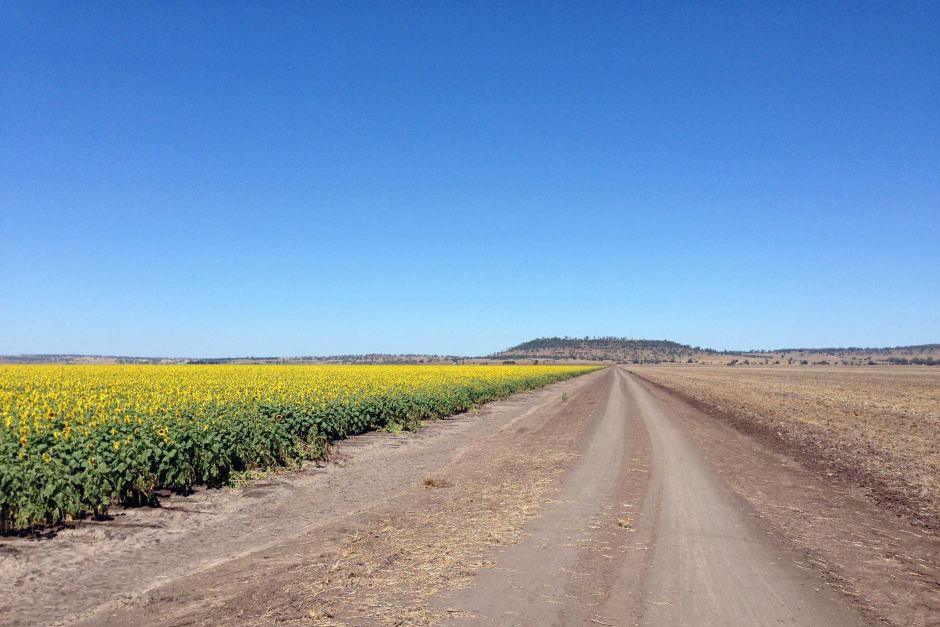Category: Mining Industry
Controversial Chinese Shenhua coal mine 'unlikely' to go ahead
Wednesday, 17 Feb 2016 11:34:55 | Lucy Barbour

A controversial Chinese coal mine project in the New South Wales Liverpool Plains looks unlikely to go ahead.
Shenhua's $1.2 billion open cut Watermark coal mine near Gunnedah has conditional approval from the Federal Government, but its mining exploration license expires on Monday.
The company told the ABC it still has not applied to the NSW Government for a mining lease, despite already having development consent from the State Government.
A mining lease is essential for the next stage of the project and it is typical for companies to apply for one as soon as they have development consent.
If granted, a lease would cost $200 million, on top of the $300 million already spent on the exploration license.
The expiry of the exploration license would not stop Shenhua from proceeding with the project.
But the company's development consent is under challenge in the NSW Land and Environment Court by the Upper Mooki Landcare Group, which has argued the project places the local koala population at risk.
The judgement for the case is yet to be handed down.
If the court overturns Shenhua's development approval, Shenhua and the State Government would have to start the lengthy assessment process all over again.
The ABC has also learned that Shenhua has not made any submissions to the NSW Department of Planning since March 26 last year.
Federal Government sources have told the ABC such factors indicate it is "unlikely" the mine will go ahead.
Mine proposal "ridiculous" according to Barnaby Joyce
They think Shenhua is "stalling" the project because it is not financially viable, and they point to China's slowing economy and falling commodity prices.
China's coal imports dropped by 30 per cent last financial year and Shenhua's own coal sales slumped by 18 per cent. The decline has continued this year.
 Photo:
Barnaby Joyce argued the proposed mine was too close to agricultural land. (Supplied: Shengua )
Photo:
Barnaby Joyce argued the proposed mine was too close to agricultural land. (Supplied: Shengua )
Thermal coal, which is used in energy production, has fallen about 20 per cent in the past year to around $US50 per tonne. That is compared to the more than $US130 per tonne it fetched in 2011.
Meanwhile, metallurgical coal, which is used to make steel, has crashed from $300 per tonne to $81 per tonne over the last four years.
And in the past two years there has been less of a political taste for coal in China.
China's central government has made no secret of its goal to diversify away from coal-fired electricity to build a stronger clean energy sector.
In the past year and a half, high-emitting factories have been forced to close in the push to reduce smog and pollution.
Federal Environment Minister, Greg Hunt approved the Watermark coal mine last year, on the condition that it would not extract more than 10 million tonnes of coal per year and that it must have a water management plan.
Agriculture Minister Barnaby Joyce, whose New England electorate includes the Liverpool Plains, opposed the mine and labelled it "ridiculous".
He has argued the mine site is too close to prime agricultural land.
The NSW Government last week denied suggestions Shenhua had asked to pull out of the project and that it wanted its money back.
The Government has not responded to questions from the ABC about the future of the mine and its current status, and Shenhua would not comment.
Shenhua had anticipated its mine operations would commence last year, and previously suggested that Watermark would employ up to 600 workers during the construction phase and more than 400 staff in ongoing operations.
Questions have also been raised about the financial viability of BHP's Caroona mine, which sits adjacent to the Watermark site.
NSW Government sources have told the ABC that BHP is currently talking to the State Government about redrawing the boundaries of the mine, to move it away from prime agricultural land.
- About Us
- |
- Terms of Use
- |
-
 RSS
RSS - |
- Privacy Policy
- |
- Contact Us
- |
- Shanghai Call Center: 962288
- |
- Tip-off hotline: 52920043
- 沪ICP证:沪ICP备05050403号-1
- |
- 互联网新闻信息服务许可证:31120180004
- |
- 网络视听许可证:0909346
- |
- 广播电视节目制作许可证:沪字第354号
- |
- 增值电信业务经营许可证:沪B2-20120012
Copyright © 1999- Shanghai Daily. All rights reserved.Preferably viewed with Internet Explorer 8 or newer browsers.




 Send to Kindle
Send to Kindle